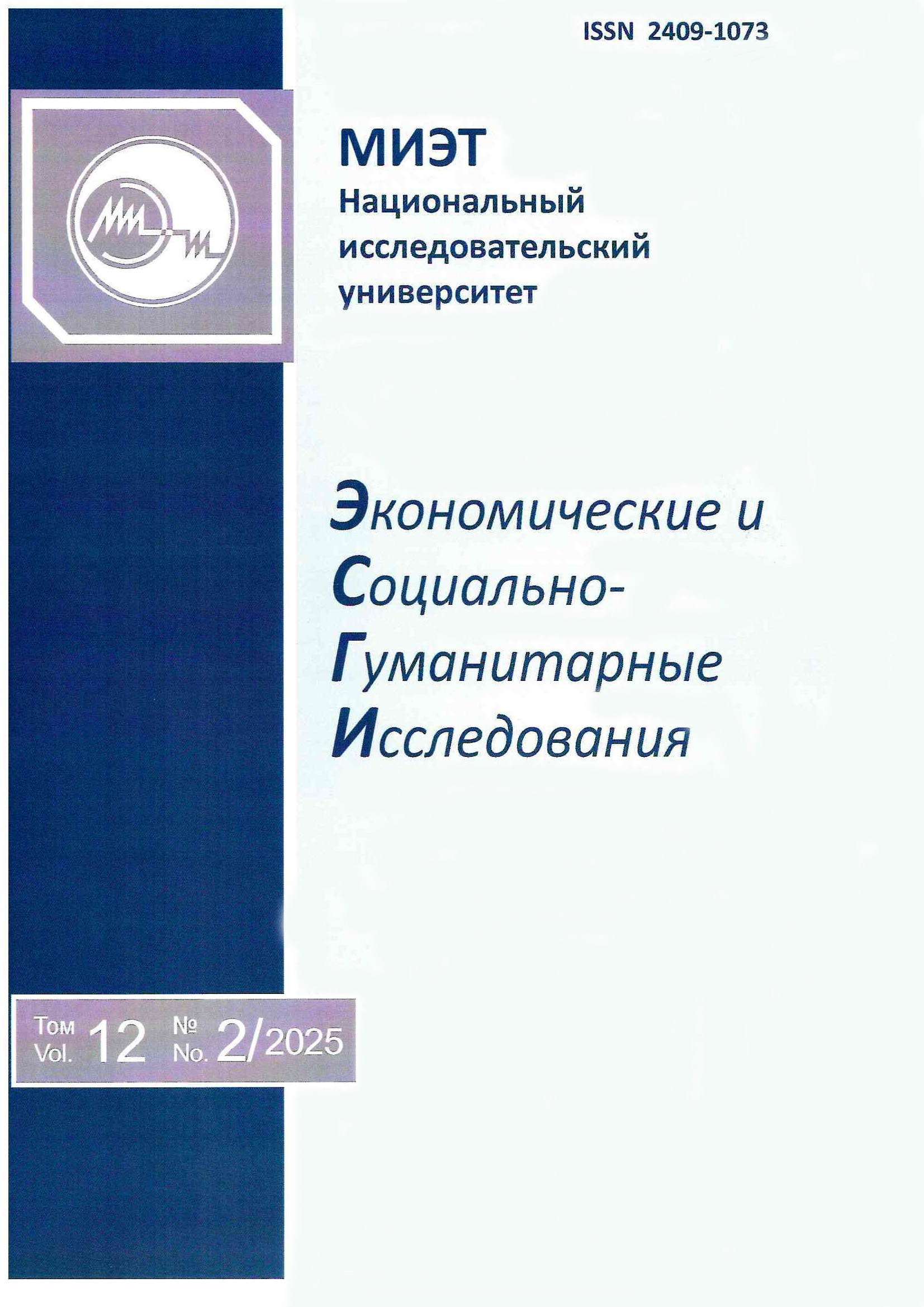graduate student
Russian Federation
UDC 37.01
The author examines the relationship between the research of social technologies and the application of their results in the education system through the problematics of knowledge formation in the educational process. The problem of developing students’ cognitive abilities through scientific methods and technologies is discussed. Since the epistemology of education develops in interaction with the idea of educational transformation relevant to the needs of the modern knowledge society, the author has suggested the principles for the long-term improvement of the teaching/learning process, taking into account the epistemic aspects of the personality of students.
epistemology of education, social technology, social epistemology, educational transformation
1. Argamakova A. A. “Applied Socio-Humanitarian Knowledge, Social Technologies and Engineering”. Epistemologiya i filosofiya nauki = Epistemology & Philosophy of Science 46.4 (2015): 70—84. (In Russian).
2. Karpov A. O. “Educational Epistemology and Knowledge Transformation”. Vestnik Moskovskogo universiteta ser. 7 Filosofiya = Moscow University Bulletin ser. 7 Philosophy 6 (2010): 79—92. (In Russian).
3. Kasavin Ilya. “STS: Anticipatory Naturalization or Catching Up Modernization?” Epistemologiya i filosofiya nauki = Epistemology & Philosophy of Science 39.1 (2014): 5—17. (In Russian).
4. Kasavin I. “Science Studies: A Quest for the Subject Matter”. Epistemologiya segodnya. Idei, problemy, diskussii: monograph. Eds I. T. Kasavin, N. N. Voronina. Nizhny Novgorod: Lobachevsky State U of Nizhni Novgorod, 2018. 406—413. (In Russian).
5. Kasavin I.T. “Are We Disputing on the Same Subject?”. Epistemologiya i filosofiya nauki = Epistemology & Philosophy of Science 24.2 (2010): 54—60. (In Russian).
6. Lektorskiy V. A. “Epistemology and Study of Cognitive Processes”. Epistemologiya vchera i segodnya: collection. Publ. ed. V. A. Lektorskiy. Moscow: RAS Institute of Philosophy, 2010. 3—30. (In Russian).
7. Rozov M. A. “Cognition as Subject of Epistemology. Core Messages and Problems”. Epistemologiya vchera i segodnya: collection. Publ. ed. V. A. Lektorskiy. Moscow: RAS Institute of Philosophy, 2010. 31—50. (In Russian).
8. Fuller S. The Sociology of Intellectual Life: The Career of the Mind in and Around the Academy. Los Angeles: SAGE, 2009. 192 p.
9. Baxter Magolda M. B. Knowing and Reasoning in College: Gender-Related Patterns in Students’ Intellectual Development. San Francisco, CA: Jossey-Bass, 1992. 480 p.
10. Dewey John. How We Think: A Restatement of the Relation of Reflective Thinking to the Educative Process. Chicago: D. C. Heath & Co., 1933. 301 p.
11. Ferrier J. F. Institutes of Metaphysic: the Theory of Knowing and Being. Edinburgh: W. Blackwood and Sons, 1854. 584 p.
12. Fuller S. The Philosophy of Science and Technology Studies. New York: Routledge, 2013. 208 p. https://doi.org/10.4324/9780203953976
13. Hofer B. K., Pintrich P. R. “The Development of Epistemological Theories: Beliefs about Knowledge and Knowing and Their Relation to Learning”. Review of Educational Research 67.1 (1997): 88—140. https://doi.org/10.3102/00346543067001088
14. King Patricia M., Kitchener Karen Strohm. Developing Reflective Judgment: Understanding and Promoting Intellectual Growth and Critical Thinking in Adolescents and Adults. San Francisco: Jossey-Bass, 1994. 323 p.
15. Kitchener K. S., Lynch C. L., Fischer K. W., Wood Ph. K. “Developmental Range of Reflective Judgment: The Effect of Contextual Support and Practice on Developmental Stage”. Developmental Psychology 29 (5) (1993): 893—906. https://doi.org/10.1037/0012-1649.29.5.893
16. Kuhn D. “Science as Argument: Implications for Teaching and Learning Scientific Thinking”. Scientific Education 77.3 (1993): 319—337. https://doi.org/10.1002/sce.3730770306
17. Perry W. G. Forms of Intellectual and Ethical Development in the College Years: A Scheme. New York: Holt, Rinehart and Winston, 1970. 256 p.
18. Schommer M. “Effects of Beliefs about the Nature of Knowledge on Comprehension”. Journal of Educational Psychology 82.3 (1990): 498—504. https://doi.org/10.1037/0022-0663.82.3.498
19. Schommer M. “Synthesizing Epistemological Belief Research: Tentative Understandings and Provocative Confusions”. Educational Psychology Review 6.4 (1994): 293—319. https://doi.org/10.1007/BF02213418
20. Wolenski J. “The History of Epistemology”. Niiniluoto I., Sintonen M., Wolenski J., eds. Handbook of Epistemology. Dordrecht: Springer, 2004. 3—54. https://doi.org/10.1007/978-1-4020-1986-9_1








